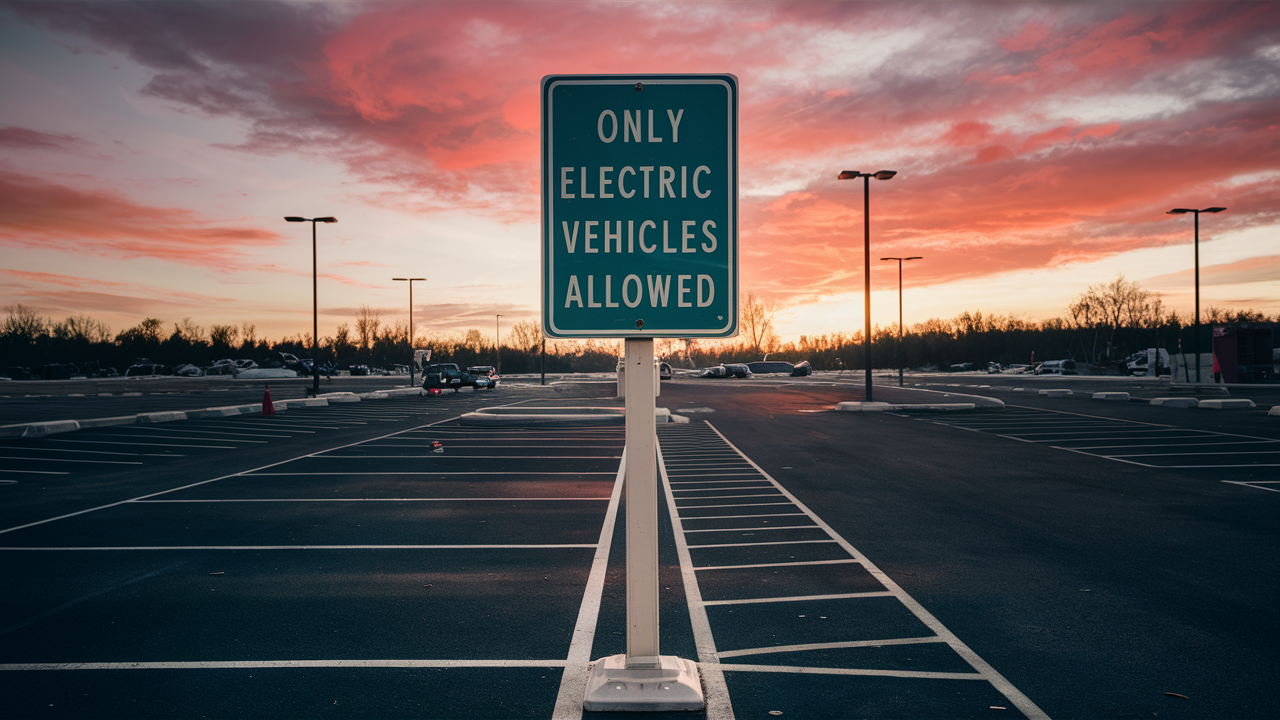Why We Should Ditch Electric Vehicle Sales Mandates
Forcing EVs means regular folks will lose their freedom of movement

Are you all charged up about electric vehicles? The government sure is. They’re pushing EVs onto us faster than you can say "battery pack." In 2023, 7.6% of all new light-duty vehicles sold in the U.S. were electric. But the feds and a few states like California, New Jersey, and Virginia have grand plans—they want all new vehicles sold by 2035 to be electric. The EPA aims for a 60% market share for new battery-powered rides by 2030.
So, what's the deal with these electric vehicle mandates? They’re more of a headache than a solution. These rules will increase transportation costs for families and reduce freedom, all while barely making a dent in environmental benefits.
Key takeaways:
- These mandates increase car prices before the technology and charging stations are properly set up for everyone to easily use.
- Electric cars might not actually help the environment as much as people think. Making the batteries releases a lot of harmful emissions. However, innovation could change this.
- The mandates take away our freedom to choose what vehicle we want.
The Real Cost of Going Electric
Supporters of electric vehicle mandates argue that gas-powered cars are big CO2 emitters. True, EVs don’t spew CO2 while driving, but generating the electricity to charge them? That’s another story. Still, it’s less CO2 per mile than gas cars, especially if the electricity comes from renewables.
But making EVs isn’t exactly green. It takes 30% to 40% more CO2 to produce an EV than a gasoline car. Battery production is a CO2 heavyweight. The CO2 savings from driving an EV depend on how the electricity is made and how long the car lasts.
Renewable Energy: A Slow Burn
A big part of the EV argument hinges on renewable energy taking over. President Biden wants 100% carbon pollution-free electricity by 2030. Not gonna happen. The U.S. Energy Information Administration says we’ll get to 42% renewable energy by 2050.
Gridlock on the Electric Grid
Imagine everyone switching to EVs overnight. Our electric grid would be toast. Palo Alto, California, aims for 80% EV use by 2030. Without upgrades, more than 95% of their transformers would overload. Too much nighttime charging can wear out transformers faster.
Renewable Energy's Hidden Costs
Switching to more renewable energy isn't a walk in the park. Wind and solar power might seem cheaper, but they need backup from fossil fuels when the wind isn’t blowing or the sun isn’t shining. This increases costs and makes the grid less reliable. Covering 16% to 33% of the U.S. with windmills and solar panels requires a lot of land.
The Supply Chain Struggle
EVs need a ton of batteries. To make half of all new vehicles EVs by 2030, we’d need 8 million batteries a year—seven times what was produced in 2023. We’d need 1.2 million public charging stations, costing over $35 billion. Charging takes five times longer than filling up with gas, and those stations are pricey to build.
Who's Driving EVs?
Without government subsidies, fewer people would own EVs. Even with subsidies, EVs are pricier than gas cars. Most EV owners are older, well-off white males. For many Americans, EVs are just too expensive. Long-distance travel in an EV is also a hassle. A Wall Street Journal piece highlighted a 2,000-mile trip from New Orleans to Chicago that took way longer in an EV than it would in a gas car.
Environmental and Social Costs
EVs might seem eco-friendly, but their batteries are another story. Lithium mining demands a lot of water, often in arid regions. In Chile’s Atacama Desert, lithium mining has lowered water levels and harmed local wildlife. Some mines use child labor or forced labor, making that "clean" energy a lot dirtier.
The Bottom Line
Government EV mandates are a bad deal. They make EVs more expensive, strain the electric grid, and might not cut CO2 emissions as much as we think. Plus, they come with serious environmental and social costs. A better approach? A moderate carbon tax on gasoline and diesel. This would encourage people to switch to more fuel-efficient vehicles or EVs without forcing everyone into pricey electric cars. Let’s keep our freedom to choose and let the market drive the transition.